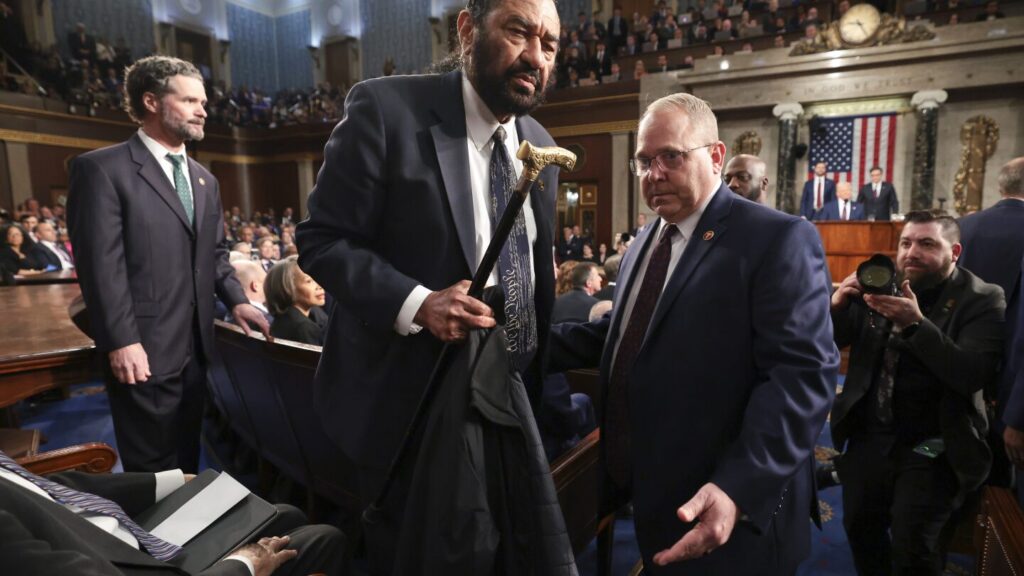In a recent development, the House is poised to vote on censuring Rep. Al Green of Texas for his vocal outburst during President Donald Trump’s address to Congress. Following his defiance of House Speaker Mike Johnson’s orders to sit down, Green’s behavior has sparked a swift response from Republicans in the form of a censure resolution. This resolution, championed by Rep. Dan Newhouse of Washington, is seen as a necessary step to uphold decorum in the House chamber.
Green’s actions have ignited a debate over the appropriateness of conduct during presidential addresses to Congress, with references made to past instances of disruptive behavior from both political parties. Democrats’ attempts to table the censure resolution were unsuccessful, highlighting the divisive nature of the issue. Despite facing criticism, Green remained unapologetic, emphasizing his stance on healthcare and the importance of standing up for his constituents.
The incident has brought to light broader tensions within the House, with some lawmakers choosing to skip the address and others engaging in protests during Trump’s speech. While opinions on Green’s actions vary, the episode underscores the deep political divides and differing perspectives on how to express dissent within the legislative body. As the House prepares for the censure vote, the fallout from Green’s outburst continues to fuel discussions on political decorum and the role of dissent in the legislative process.

